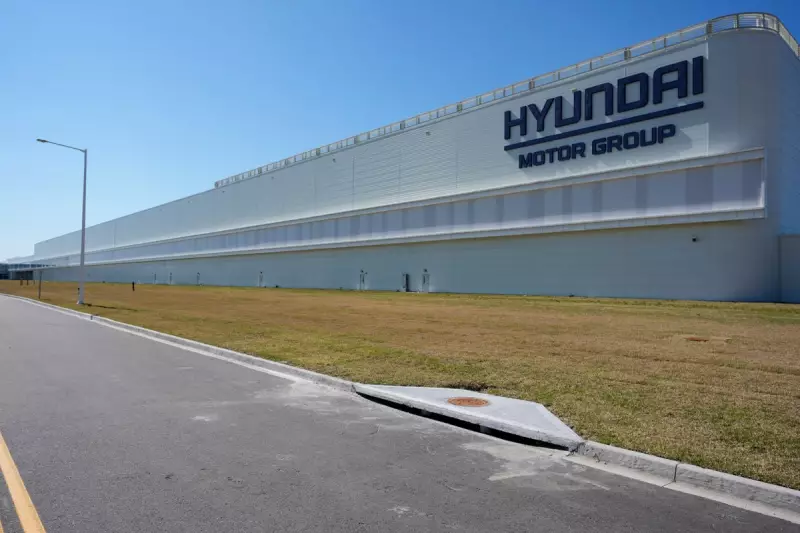
In a bold move that sets up a potential confrontation with former President Donald Trump, Hyundai Motor Company has firmly stated it will proceed with operations at its $7.6 billion electric vehicle assembly plant in Georgia. The announcement comes directly from Seoul, defying Trump's recent warnings against automakers who employ unionised labour.
The sprawling facility near Savannah represents one of the largest economic development projects in Georgia's history and serves as a cornerstone of America's transition to electric transportation. Hyundai's commitment signals both the global automotive industry's confidence in the US market and the growing influence of organised labour in the traditionally non-union South.
Political Pressure Meets Manufacturing Reality
Trump's threats, delivered during a campaign rally, specifically targeted automakers who would work with the United Auto Workers union. His comments created immediate uncertainty for foreign automakers with significant operations in southern states, including Hyundai, BMW, and Mercedes-Benz.
Despite the political pressure, Hyundai appears unwavering in its commitment. "We are moving forward as planned," stated a company representative, emphasising their focus on creating thousands of American jobs and contributing to the local economy.
The UAW's Southern Strategy
The United Auto Workers has been actively pursuing an ambitious campaign to organise workers at foreign-owned plants across the American South. Their strategy has gained momentum following successful contract negotiations with Detroit's Big Three automakers, which resulted in significant wage increases and improved benefits.
Recent research from the Pew Research Center indicates shifting attitudes toward unionisation among American workers, particularly in industries undergoing technological transformation like automotive manufacturing. The electric vehicle transition has created new organising opportunities as automakers hire thousands of workers for battery and assembly plants.
Economic Implications for Georgia
Hyundai's Georgia facility represents a transformative investment for the state, promising approximately 8,500 direct jobs and thousands more in the supply chain. The plant is crucial to Georgia's ambition to become the "electric mobility capital" of the United States.
State officials have remained cautiously optimistic, emphasising their commitment to supporting businesses while respecting workers' rights to organise. The situation presents a complex challenge for local leaders who must balance economic development with potentially divisive labour politics.
As the 2024 presidential election approaches, the clash between political rhetoric and manufacturing reality highlights the ongoing tension between America's industrial policy and its labour landscape. Hyundai's decision to proceed despite political threats underscores the substantial economic forces at play in the nation's transition to electric vehicles.





